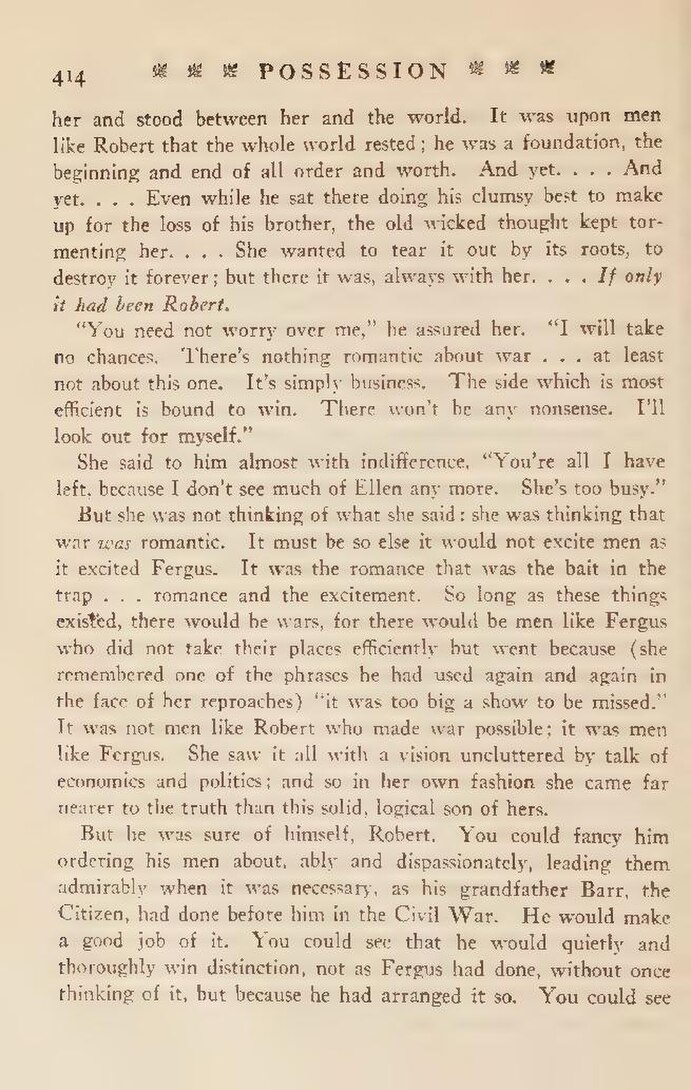her and stood between her and the world. It was upon men like Robert that the whole world rested; he was a foundation, the beginning and end of all order and worth. And yet. . . . And yet. . . . Even while he sat there doing his clumsy best to make up for the loss of his brother, the old wicked thought kept tormenting her. . . . She wanted to tear it out by its roots, to destroy it forever; but there it was, always with her. . . . If only it had been Robert.
"You need not worry over me," he assured her. "I will take no chances. There's nothing romantic about war . . . at least not about this one. It's simply business. The side which is most efficient is bound to win. There won't be any nonsense. I'll look out for myself."
She said to him almost with indifference, "You're all I have left, because I don't see much of Ellen any more. She's too busy."
But she was not thinking of what she said: she was thinking that war was romantic. It must be so else it would not excite men as it excited Fergus. It was the romance that was the bait in the trap . . . romance and the excitement. So long as these things existed, there would be wars, for there would be men like Fergus who did not take their places efficiently but went because (she remembered one of the phrases he had used again and again in the face of her reproaches) "it was too big a show to be missed." It was not men like Robert who made war possible; it was men like Fergus. She saw it all with a vision uncluttered by talk of economics and politics; and so in her own fashion she came far nearer to the truth than this solid, logical son of hers.
But he was sure of himself, Robert. You could fancy him ordering his men about, ably and dispassionately, leading them admirably when it was necessary, as his grandfather Barr, the Citizen, had done before him in the Civil War. He would make a good job of it. You could see that he would quietly and thoroughly win distinction, not as Fergus had done, without once thinking of it, but because he had arranged it so. You could see
